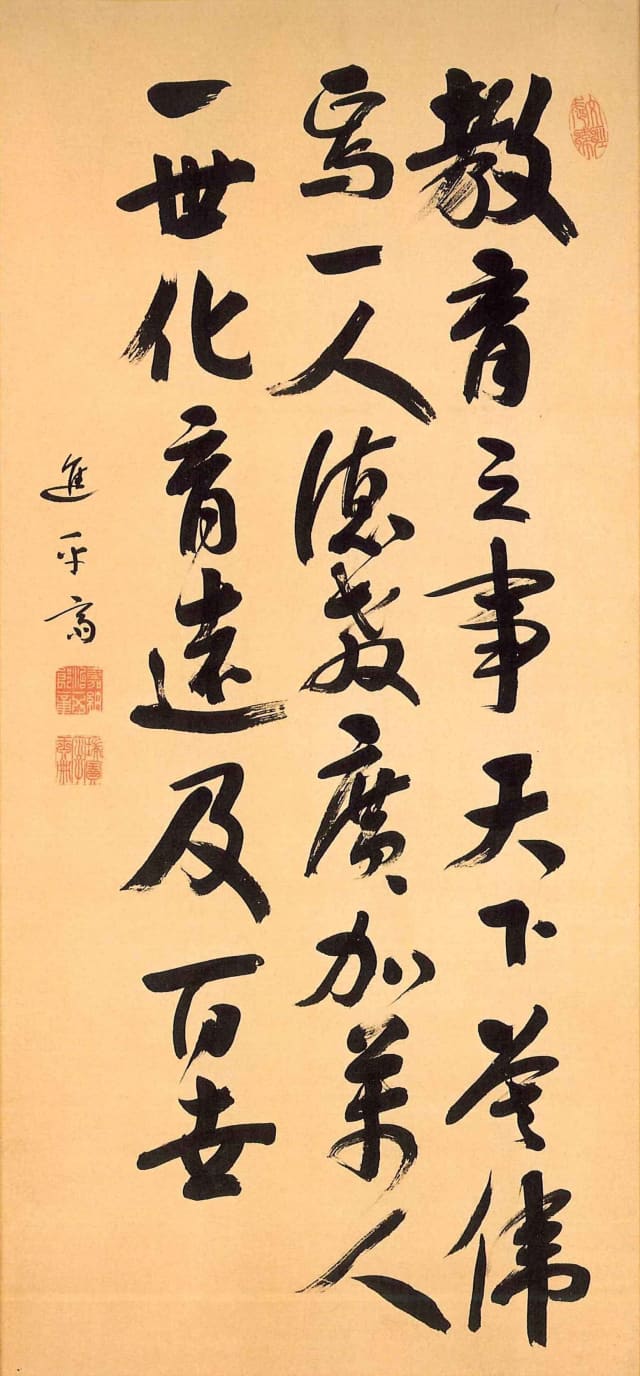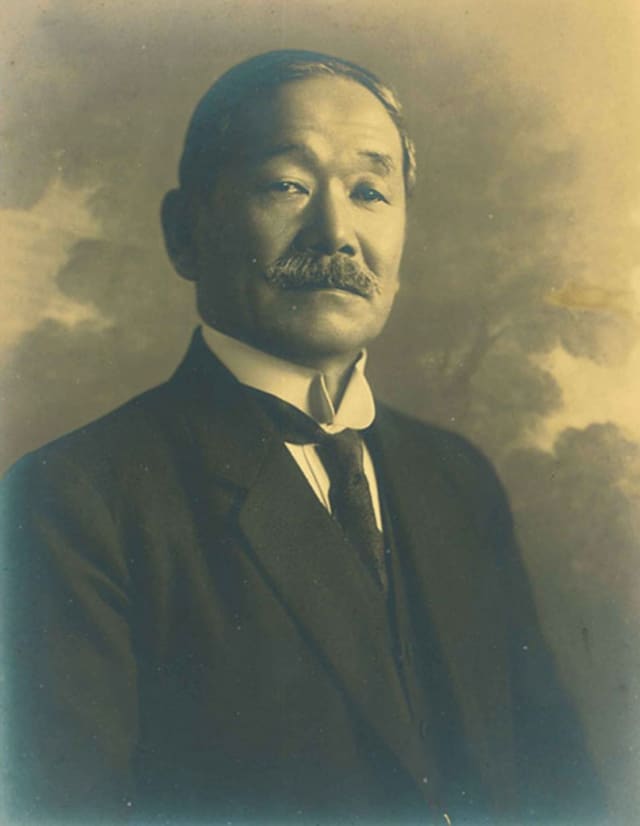Kano’s judo, which was already a synthesis of ancestral Japanese traditions and the modernity towards which his country was resolutely turning, gradually became an activity which found familiar ground within all the cultures and traditions of the world. Thus in 1910, Kano published ‘Teaching and Education of Youth.’ For him, this synthesis was the fruit of more than thirty years of observation of educational systems, both in Japan, where he aspired to change the educational approach profoundly, so that it corresponded to the modern world, and in the countries that he visited tirelessly. Although he had only limited influence on what happened outside his native country, he believed that through judo in particular, he could contribute to making the world fairer and more balanced.
In his work, Kano addresses young adolescents directly, and indirectly the entire population. He presents themes as varied as studies, diet or social behaviour but he also addresses more general theories on teaching and the impact that everyone can have in society by carrying out work on personal development. According to him, society is made up of individuals who need to be able to develop personally to contribute to the emancipation of society as a whole. Here we find the very foundations of judo, the objective of which is to develop physically and mentally in order to contribute to the advent of better citizens. The programme is ambitious but necessary. It involves an integration of the individual into the group, without the former losing their soul or free will.
Kano's preferred target, we understand, was therefore the youth because it is to them that the future belongs. For the founder of judo, nothing can be done without the involvement of young people; they are the ones who must be educated and pampered because the years to come depend only on them. Youth without quality education or without education at all are lost generations.
In ‘Teaching and Education of Youth,’ Kano, who is a scholar, nevertheless remains very concrete. Through around fifty chapters, he addresses everything that is important to him in the education of young people. The idea of quality of life is the first theme discussed because every human being must be able to live a life worth living. As we have emphasised, Kano was very attached to the notion of group (society) and the well-being of each individual which, if achieved, contributes to the construction of a strong and balanced nation. The corollary of this approach implies that society itself must provide the basis for assumed individual happiness.
For this, it is crucial that society helps the individual to develop, so that they may contribute to improving the quality of life of all citizens. If Kano is in favour of a strong nation, he is 1,000 miles away from outrageous nationalism and will fight this tendency all his life, a tendency which leads to withdrawal into oneself rather than openness to others. He is the very antithesis of nationalist developments which unfortunately stained the 20th century with blood.
One of the key elements of Kano's approach is that it is only by moving towards a goal, that people can improve and progress. Here we find the whole essence of judo, where it is not so much the goal that matters, although one is necessary, but the associated path. It is the combination of the two, goal and path, which creates success. To achieve your goal, you therefore need means that are suitable and the best possible, added to adequate force. Through experience, everyone can find what they need. Although the approach may seem very philosophical, it must above all be concrete.
Once again, we understand ‘why judo.’ Kano saw in his invention the practical and concrete tool which should allow everyone to achieve their goals, by following an adapted learning path and using the means conducive to individual development for the establishment of a more sustainable society. To the means, Kano added force, which must be well used and concentrated, hence the notion of better use of energy for maximum efficiency.
Education cannot therefore be limited in time. It extends throughout life. Everyone must perfect their knowledge and learning constantly. Kano said, "For life, the most important thing is the work of construction and not the work of destruction." (source: Jigoro Kano, Father of Judo - Michel Mazac - Budo Editions, 2014) Today, this resounds as a necessity for humanity.



